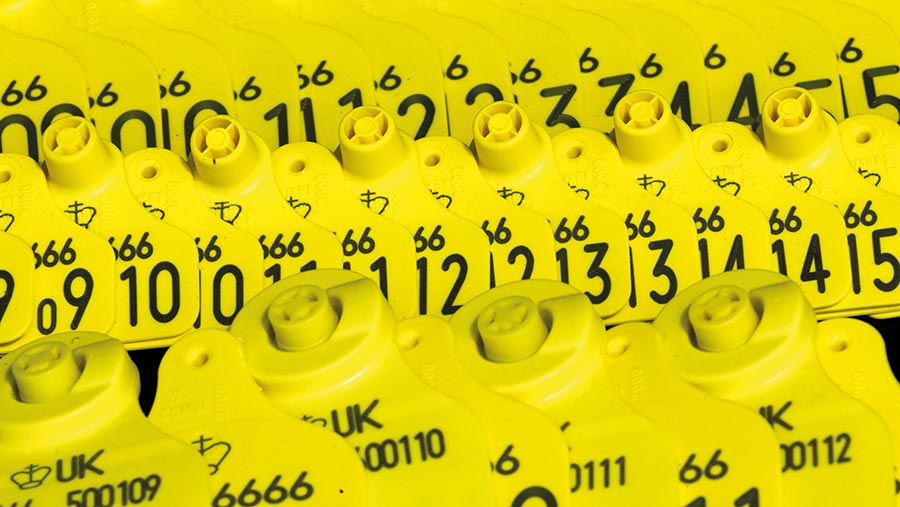Cross-compliance 2023: RPA to be pragmatic on penalties
 © Tim Scrivener
© Tim Scrivener Farmers who are selected for a cross-compliance inspection in 2023 will be less likely to suffer a financial penalty for any breaches if they can demonstrate they are positively engaged with the rules and trying to meet them.
The Rural Payments Agency (RPA) has confirmed that the cross-compliance rules that farmers in England must meet in 2023 – the final year in which they will apply because of delinking in 2024 – have not changed.
However, the way that penalties will be applied has been updated because the RPA has greater flexibility now that all schemes it oversees are domestically funded.
See also: Top livestock cross-compliance breaches and how to avoid them.
In 2022, there were still some Countryside Stewardship agreements funded by the EU, which meant that in some circumstances the penalties had to be applied differently.
Russell Graham, a cross-compliance policy adviser for the RPA, says that from 1 January 2023, the RPA is no longer constrained by EU rules that had often required financial penalties of 3% to be applied, which many argued was disproportionate to some of the errors found.
‘Visits not inspections’
A new system has been developed that is more advice- and guidance-led, so “inspections” by “inspectors” have been replaced by “visits” by “field officers”.
Changes have also been made to the verified standards and penalty matrix to improve the proportionality of penalties.
Next cross-compliance date
28 February For any land located in a nitrate vulnerable zone, this date is the end for quantity restrictions for applying organic manures with a high, readily available nitrogen content.
This is subject to compliance with the Farming Rules for Water and agronomic justification for the application (SMR 1).
One of the most significant changes, which has been rolling out over the past couple of years, is allowing field officers to issue warning letters rather than issue a financial penalty in certain circumstances.
For example, in 2020, a 1% financial penalty for a breach of GAEC 7b (protection of rights of way) rules, was sent to 39% of claimants.
In 2021, this fell to zero, and 79% of farmers found to have failed to keep rights of way open and accessible adequately were issued with a warning letter instead.
Cattle and sheep ID problems
Cross-compliance failures in cattle and sheep identification (SMR 7 and 8) are still stubbornly high, says Mr Graham, and the RPA has found that about 40% of holdings have failings on cattle ID and 20-25% of sheep holdings have problems.
However, the RPA wants to recognise that there are often non-compliant farmers who present a low traceability risk because they still have had good engagement with the rules and followed good on-farm practices in relation to record-keeping and ear tags.
Now when a field officer finds small problems during a sheep and cattle ID visit, they can use their expertise to decide whether they feel the farmer is trying and take this into account when looking at penalties.
If the officer feels the farmer has not been negligent and there has been no risk to public health, they can issue an advisory compliance notice – a bit like the amber advisory on an MOT – rather than classifying it as a breach.
“Farmers will be given an advisory letter to explain where they have gone wrong and how to correct it,” says Mr Graham.
“If the farmer is trying, it will aid their case if we do find problems on cattle and sheep visits.”
Delinking
Cross-compliance will not apply after 2023 because the Basic Payment Scheme (BPS) will be replaced by delinked payments.
However, most of the requirements currently falling under the umbrella of cross-compliance will continue to apply to farms as they remain within English laws, stresses Mr Graham.
There are some standards – such as the hedgerow cutting dates and guidance on soils – that are not covered by existing legislation, but Defra is looking at how to plug those gaps and enforce them.
Farmers are also reminded that they must claim, and be eligible for, BPS payments in the 2023 scheme year to receive delinked payments for 2024-27.
Delinked payments will be based on BPS payments received during the reference period of 2020-22.
The contents of this article are based on a webinar organised by the Farming Advice Service
Common cross-compliance breaches
Failings in cattle and sheep identification continue to top the league table of common cross-compliance breaches.
Other common problems include:
- Gaps in nitrate vulnerable zone record-keeping, particularly on smaller farms
- Failure to have adequate protection zones next to hedgerows and watercourses
- Under SMR4 (food and feed law), farmers must also be able to demonstrate they have taken measures to stop the spread of contagious diseases. Hundreds of farmers each year fall foul of this if they have a late TB test, and the Rural Payments Agency is obliged to apply a financial penalty because of the potential risk to public health which this presents
Farmers are urged to re-read the guidance notes to refamiliarise themselves with the requirements.
